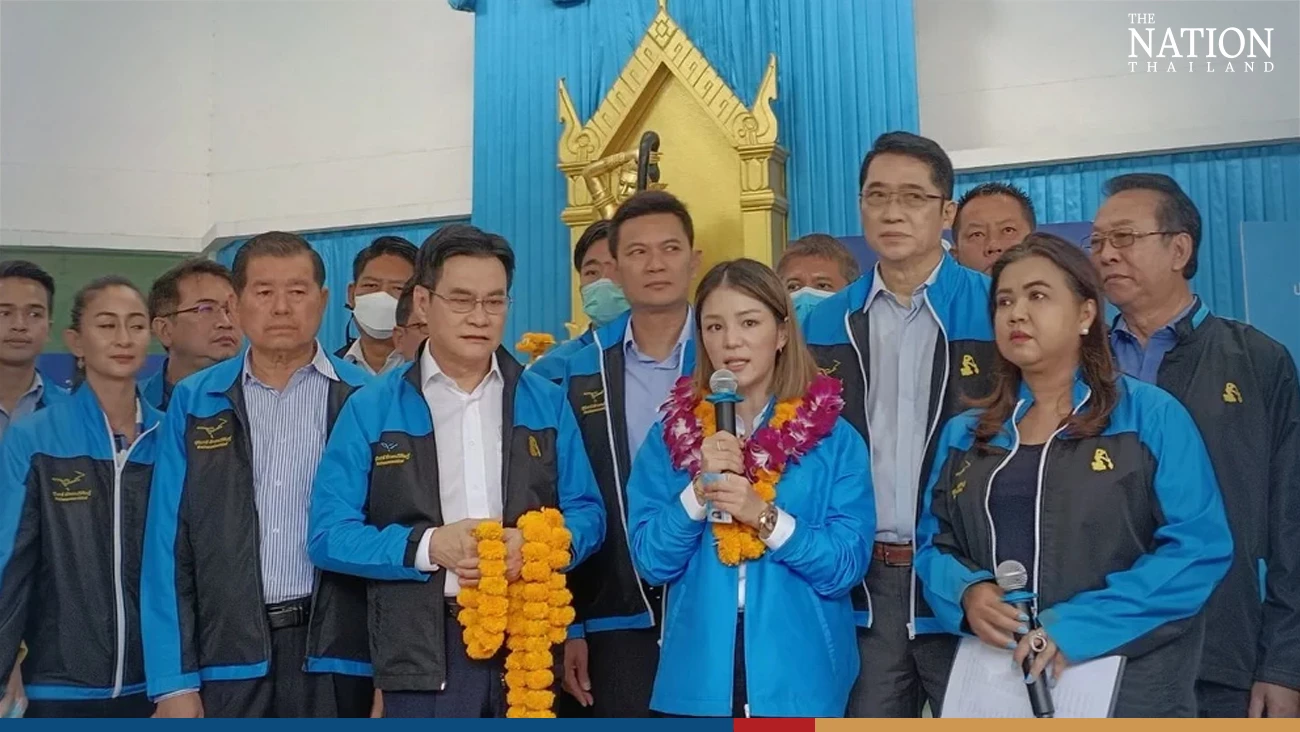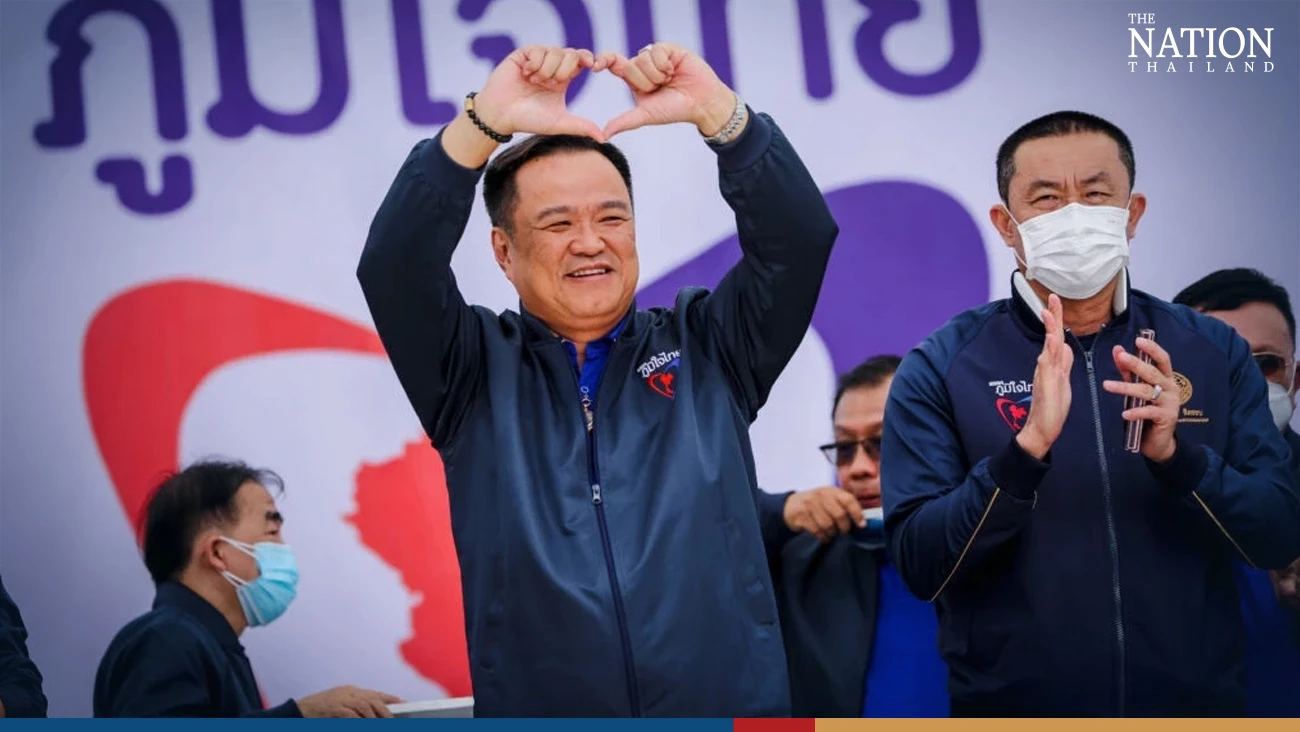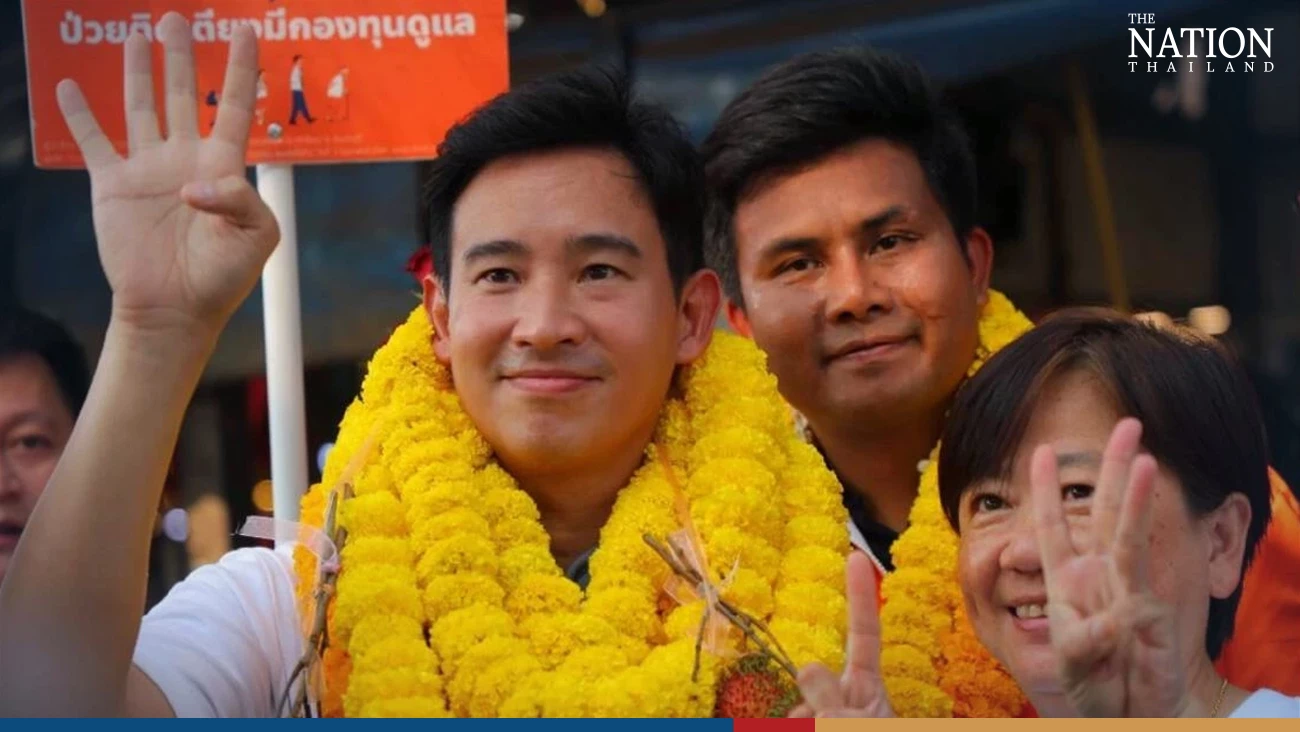April 14, 2023
BANGKOK – Realising that his original campaign as a moderate reaching out to all sides had failed to improve popularity ratings for himself and his party, outgoing Deputy Prime Minister Prawit has switched back to the conservative camp.
His party has made it clear that it would not join hands with Pheu Thai and Move Forward, as the two parties have policies to amend, if not abolish, the lese majeste law, or Article 112, of the Criminal Code.
Prawit and core party members analysed and realised that their initial campaign theme of neutrality would not work in this battle of parties and ideologies. They often found themselves in the predicament of having to choose sides in election debates or during campaigns. The recalibration of its stance suggests the party has realised that if it does not choose a side now, it would be too late to do so later.
They have learned that the result of the 2019 election was a victory for the conservatives.
In the 2019 election, there were 81 parties in the race and a total of 35,532,547 votes were cast.
The conservative and semi-conservative parties together got more than 18 million votes. They included: Palang Pracharath Party (8.433 million votes), Democrat Party (3.947 million), Bhumjaithai Party (3.732 million), Chart Thai Pattana Party (782,031), Ruam Palang Prachachart Thai (416,234), Chart Pattana (252,044), Thong Thin Thai (213,129), Rak Phuen Pa Thai (136,597) and Palang Chart Thai (73,781).
The liberal and semi-liberal parties got a combined 15.5 million votes. They included Pheu Thai (7.92 million), Future Forward, which later became Move Forward, (6.265 million), Seree Ruam Thai (826,530), Prachachart (485,436), Pua Chart (419,393), and Puang Chon Chao Thai (81,733).
But the May 14 election will see 4.012 million first-time voters, who are aged 18 to 22 years. This group constitutes 7.67% of all eligible voters, so both camps are trying to woo their support as well.
To get a better picture of the election battle lines, let us look at the key parties in the rival camps.

Prime Minister Prayut Chan-o-cha, leader of the conservative camp
After Prayut, who led the 2014 coup, entered the fray to compete against politicians whom he once abhorred, he has been helping his United Thai Nation Party (UTNP) gain popularity.
Prayut is firmly in the conservative camp and has clearly announced his opposition to the liberals. He has vowed to defend the monarchy and prevent any amendment to Article 112.
As a former Army chief, Prayut is imbued with a spirit of loyalty to the monarchy. He rose from the line of command in the 2nd Infantry Division, Queen’s Guard, so he has been on the forefront to protect the monarchy.
As a result, Prayut is seen as the No. 1 politician in the conservative camp and many pro-monarchy voters are expected to pour their support for his party.
Prayut’s staunch pro-monarchy stand is expected to win a lot of votes for his party, but it is yet to be seen whether the number of votes will be enough to allow him to retain his prime minister’s seat.

Democrat, the oldest conservative party
The Democrat Party is undeniably the country’s oldest conservative party, although Prayut has swayed support of royalists from the Democrat to Palang Pracharath since the 2019 election when the Democrats were headed by Abhisit Vejjajiva.
The current Democrat leader, Jurin Laksanawisit, is apparently facing the same situation.
Several core members of the party, candidates and party financiers are pro-monarchy elites, so the Democrat will retain its conservative stand and continue to receive sizeable support from royalists.

Bhumjaithai, a blue-blood party
The Bhumjaithai Party under the leadership of Anutin Charnvirakul has clearly announced its stand as a defender of the monarchy. Bhumjaithai has made it clear that it does not want to see the monarchy used as a tool in political conflicts.
The strong point of Bhumjaithai is not its pro-democracy stand. Instead, it depends on individual candidates who have strong bases in provinces where they contest elections.
Apart from Anutin, the party’s election strategies are also planned by Bhumjaithai patriarch Newin Chidchob.
Both Anutin and Newin are blue-blood politicians, so their party is expected to win some support from royalist voters.
Palang Pracharath abandons political polarisation stand
In his “six letters” to voters that Prawit posted on his Facebook wall, he tried to portray his party as neutral and free from the decades-long political polarisation.
But the strategy apparently did not work. Prawit could not create a neutral political image. He could not get away from his image of a general who took part in the 2014 coup.
Moreover, party strategists saw that the party’s popularity had plunged because of the attempt to portray the neutral image.
So, the party decided to realign itself with the conservative camp. It is yet to be seen how well the PPRP would be able to share royalist voters’ support with Prayut’s party.

Small parties that can join any side
Apart from the large parties of the two camps, there are also small parties that can be decisive factors to help either side win power.
They include the Chart Thai Pattana Party, Chart Pattana Kla Party, and minor parties that were partners of the Prayut coalition.
These parties may not win a high number of MPs but their number of House seats may be crucial in the election of prime minister in Parliament after the election outcome is known.
These small and minor parties just aim to win enough number of MPs to join a coalition.
So these parties refrain from antagonising any of the two camps.

Thaksin, Pheu Thai no longer No. 1 liberal party
The Pheu Thai Party and its patriarch, former prime minister Thaksin Shinawatra, are no longer regarded as the No. 1 liberal party as that perception has been won by its ally, the Move Forward Party.
Anyway, Pheu Thai is regarded as being on the side of the liberal and semi-liberal parties.
In reality, Pheu Thai does not want to restrict its choice of coalition partners because it also wants to join or bring in a party of a certain general to enhance the chance of bringing Thaksin back home from his self-imposed exile.
However, Thaksin and Pheu Thai need to retain their liberal image to woo the first-time voters. The Pheu Thai has Thaksin’s daughter, Paetongtarn Shinawatra, carry the flag as a young prime minister candidate to try to win support from the new-generation voters so that it could sweep most House seats.
The party has to balance its campaign moves well because it needs most House seats to leverage its bargaining power while being careful not to antagonise the pro-monarchy side.

Move Forward portrays itself as No. 1 liberal party
The Move Forward Party has inherited its liberal image from its predecessor, the Future Forward Party, which was dissolved in 2020 following a Constitutional Court ruling.
The liberal stance of Thanathorn Juangroongruangkit, former Future Forward leader, and Piyabutr Saengkanokkul, former Future Forward secretary-general, have been passed on to Move Forward leader Pita Limjaroenrat.
Before the House dissolution in March, Move Forward MPs often joined protests against Article 112 by young protesters. They even used their MP position to guarantee bail for the arrested protesters. The party also proposed amendments to Article 112 and the entire charter. All of these prompted the Move Forward to be seen as the most ardent liberal party on the opposition side in the pro-democracy camp.
During the election campaign, Move Forward tried to tone down its stand by campaigning on economic polices but it could not help citing Article 112 amendment as a theme to woo support from young voters.
Pheu Thai’s small allies
There are also small parties on the opposition camp that are allies of Pheu Thai and they are counted on the liberal camp. They include Seree Ruam Thai, Pua Chart, and Prachachart parties.
In particular, Pua Chart and Prachachart are seen as offshoot parties of Pheu Thai.
These parties have similar campaigns as Pheu Thai and Thaksin and they will wait for a signal from Thaksin and Pheu Thai before making any clear move.
Thai Sang Thai on a lonely path
The new Thai Sang Thai Party has been portraying itself as a neutral party that does not side with either conservatives or liberals.
This strategy gives it the advantage of being able to join any camp that wins the election. But the party could find it hard to woo support from new-generation voters, who want to see changes, as well as the old generation, who love and protect the monarchy.
As a result, a neutral party like Thai Sang Thai will have to depend on the popularity of individuals without being able to ride the tide of support that members of the two rivals camps will enjoy.


